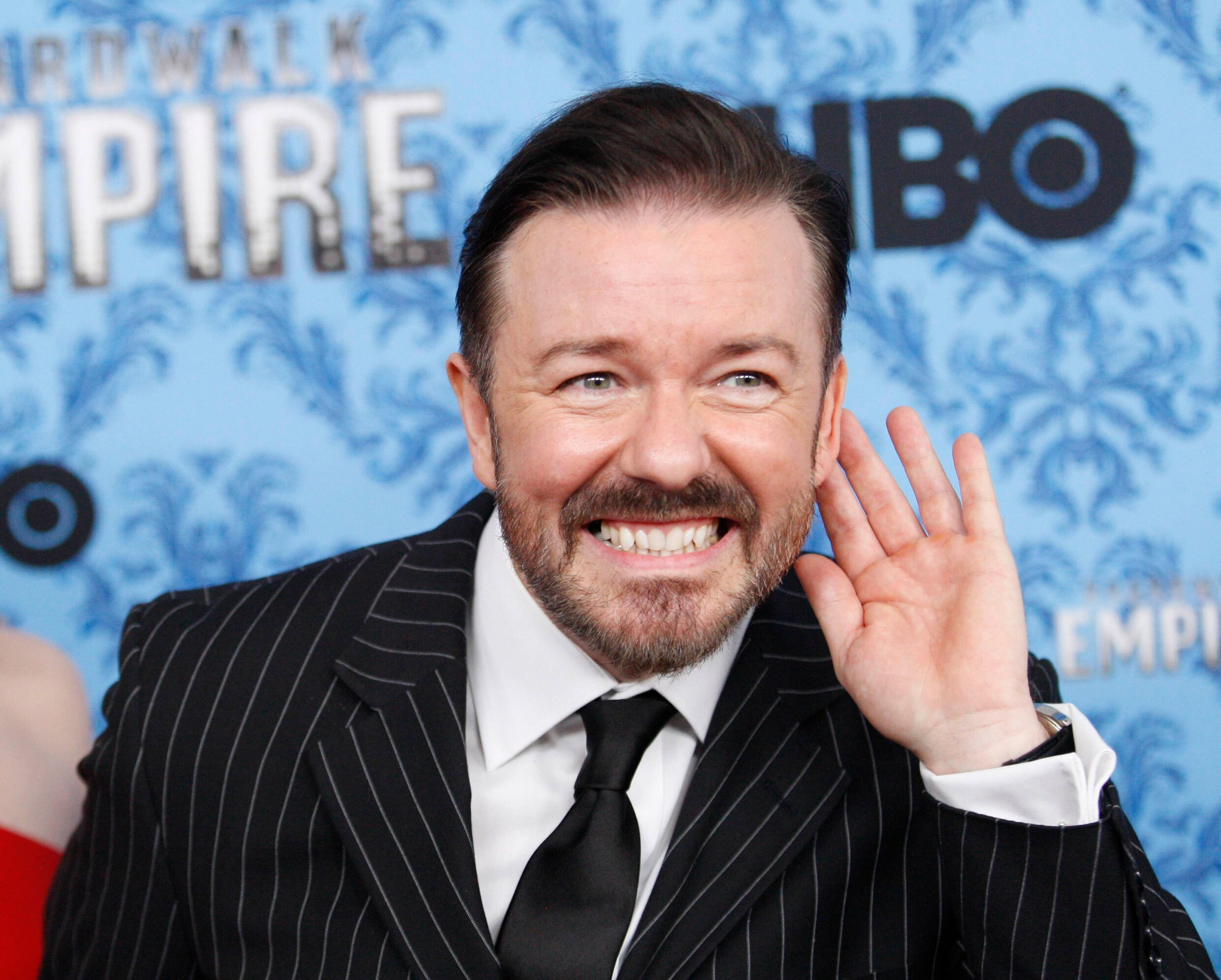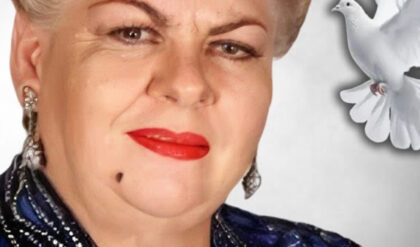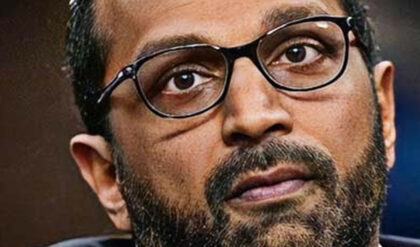British-American comedian Ricky Gervais has been making waves for years with his outspoken views on Hollywood’s culture of “wokeness.” Known for his fearless humor, Gervais has openly mocked Hollywood elites, calling out what he sees as hypocrisy and self-righteousness among celebrities who use their platforms to express political and social views. Through his comedy, Gervais highlights the irony he perceives in Hollywood’s “woke” activism, often taking to social media and public appearances to address the topic head-on.
At the 2020 Golden Globes, Gervais left an indelible mark when he took the stage and delivered a no-holds-barred monologue targeting Hollywood’s political posturing. He pointedly told the audience, “If you win, come up, accept your little award, thank your agent, and your God, and [expletive] off. No one cares about your views on politics or the real world.” In a room filled with industry giants, Gervais mocked their self-importance, implying that many of these celebrities lack the life experience to understand the struggles of everyday people.
In a humorous yet critical portrayal of a Hollywood influencer, Gervais recently shared a video where he mocked the “woke” culture he sees dominating Hollywood. Posing as a wellness and beauty influencer, he sarcastically instructs viewers to “trust me when I tell you who you should vote for.”
The clip, despite its humor, touches on a deeper sentiment Gervais holds—that many celebrities use their fame to push opinions on others, often in a way that seems disconnected from reality. This satirical approach highlights the irony he perceives in Hollywood’s activism, where public figures often demand inclusivity and empathy while seeming oblivious to their own privilege.
Gervais has also used his comedy to address more sensitive issues, like the concept of “deadnaming,” which involves referring to a transgender person by their birth name. During his Golden Globes monologue, he referenced Caitlyn Jenner by her former name, which sparked criticism from some corners for being insensitive.
However, Gervais responded by pointing out the irony in the backlash he received. He argues that while he respects people’s choices, he shouldn’t be forced to avoid certain words or phrases out of fear of offending someone. This stance aligns with his broader belief that freedom of expression should not be compromised by social pressures.
Another notable point Gervais raises is the trend of “virtue signaling” in Hollywood, where celebrities often vocalize their support for social causes. In his words, woke people “protest too much,” highlighting how Hollywood can sometimes appear more focused on projecting an image of righteousness than on making meaningful changes.
For example, Gervais often criticizes stars for condemning social injustices while simultaneously working for corporations with questionable ethics. His biting Golden Globes joke—“If ISIS started a streaming service, you’d call your agent”—illustrates his perception of Hollywood’s willingness to turn a blind eye to moral inconsistencies for the sake of profit.
This satire does not come without backlash. Gervais’s willingness to joke about sensitive topics has frequently made him a target for criticism, with some accusing him of promoting harmful stereotypes.
His most recent Netflix special, SuperNature, drew strong reactions from viewers and critics alike, particularly for jokes involving the LGBTQ+ community and other marginalized groups.
When asked about the controversy, Gervais brushed off the criticism, saying, “You can’t say that” in reference to the backlash. His response reflects his belief that free speech is paramount and that people should be able to handle offensive or uncomfortable ideas without attempting to censor them.
Gervais has also spoken about the concept of free speech zones on college campuses, a new development that he sees as a limitation on open dialogue.
He noted how, in his view, universities were once places where people could speak freely and challenge ideas, whereas now, certain areas are designated as “safe spaces” for free speech, implying that students are sheltered from views they may find challenging or offensive. His perspective is that censoring speech in academic settings hinders intellectual growth and freedom.
Through his use of humor, Gervais draws attention to what he views as contradictions in modern social justice movements. His critiques have sparked broader discussions about cancel culture, freedom of speech, and the role of comedians in challenging societal norms.
Gervais contends that people today are too easily offended, seeking out reasons to be outraged rather than engaging in productive debate or personal growth. In his view, embracing offense and learning to laugh at oneself are crucial steps toward a more open, tolerant society.
In a world where “woke” culture and political correctness often dominate public discourse, Gervais remains a vocal advocate for free expression. His humor may not resonate with everyone, but it undeniably challenges the status quo, prompting discussions about the balance between sensitivity and censorship.
Whether seen as a provocateur or a truth-teller, Gervais has become a symbol of resilience in comedy, constantly pushing boundaries and testing the limits of what society deems acceptable in pursuit of his vision of an uncensored, open world.






